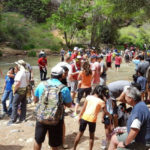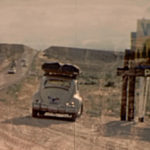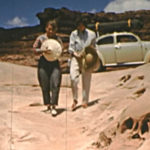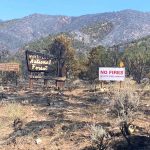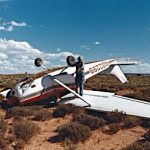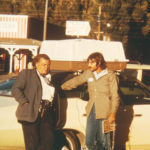
Most of us are afraid to pick up hitchhikers these days, and many potential hitchhikers are afraid to thumb for a ride. I don’t think I’d take the risk these days, after a few close calls many years ago. You never know if the stranger who’s offering you a ride is just a nice guy trying to be a Good Samaritan, or if he wants to take you out to some remote corner of the desert and dismember you, and have your liver for lunch. Scary times indeed.
But I’ve known a few of them. Traveling by thumb was their way of life. And many of them loved it. I even gave it a try myself on a very bizarre cross-country, mid-winter hitchhike with my dog Muckluk—from Los Angeles to Louisville, Kentucky (part 2 of this hitchhiking story will include that little misadventure). That was so many years and decades ago.
Whenever I picked up a hitchhiker, I’d ask him about the risks involved in thumbing, and just dealing with the extreme weather conditions. I remember one old fellow said to me, “It may be too cold or too hot, and scary as hell sometimes, but how much did you spend on gas today?” He had a point.

